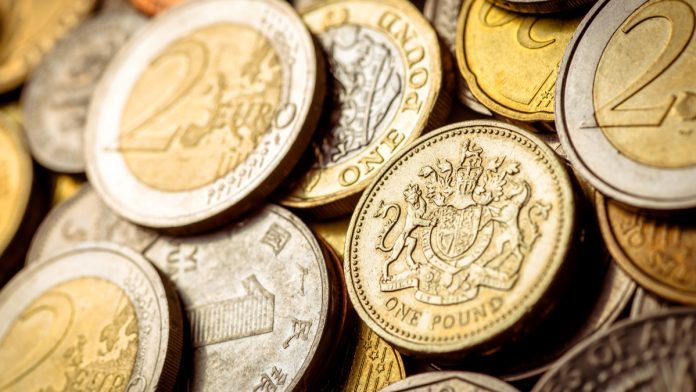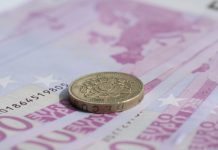- Pound (GBP) rises after falling yesterday
- UK CPI holds at 6.7%
- Euro (EUR) looks to Eurozone inflation data
- ECB President Lagarde to speak
The Pound Euro (GBP/EUR) exchange rate is rising after losses yesterday. The pair fell -0.50% in the previous session, settling on Tuesday at €1.1511 and trading in a range between €1.1503 – €1.1574. At 07:35 UTC, GBP/EUR trades +0.1% at €1.1518.
The pound is pushing higher after UK inflation data proved to be stickier than expected in September. The consumer price index came in at 6.7% year on year in September, unchanged from August. Economists had been expecting a fall to 6.6%, with higher prices at the petrol pumps one of the main drivers of the sticky inflation.
Meanwhile, core inflation which strips out more volatile items such as food and fuel, cooled by less than expected to 6.1% from 6.2% and missing forecasts.
The data highlights the struggles for the Bank of England as it tries to tame inflation back to the 2% target UN comes despite 14 straight meetings of interest rate hikes.
The data follows figures yesterday, which showed that the UK wage growth eased from its record high of 7.9% in the three months to July to 7.8% in the three months to August, raising some hopes that peak wage grace may have passed.
The Bank of England will meet on the 2nd of November to decide whether to raise interest rates again. The market is pricing in just a 30% probability of another rate hike. However, the market is pricing in a 60% probability that the Bank of England will raise interest rates again by early next year.
The euro is falling as investors look ahead to the release of eurozone inflation data, which is expected to confirm that consumer prices cooled to 4.3% year on year in September, down from 5.2% in August. Hotter-than-expected inflation may raise doubts over whether the ECB has ended its rate-hiking cycle.
Attention will also be on a speech by ECB president Christine Lagarde, who could provide further clues over the future path for interest rates on the outlook for the eurozone economy.





